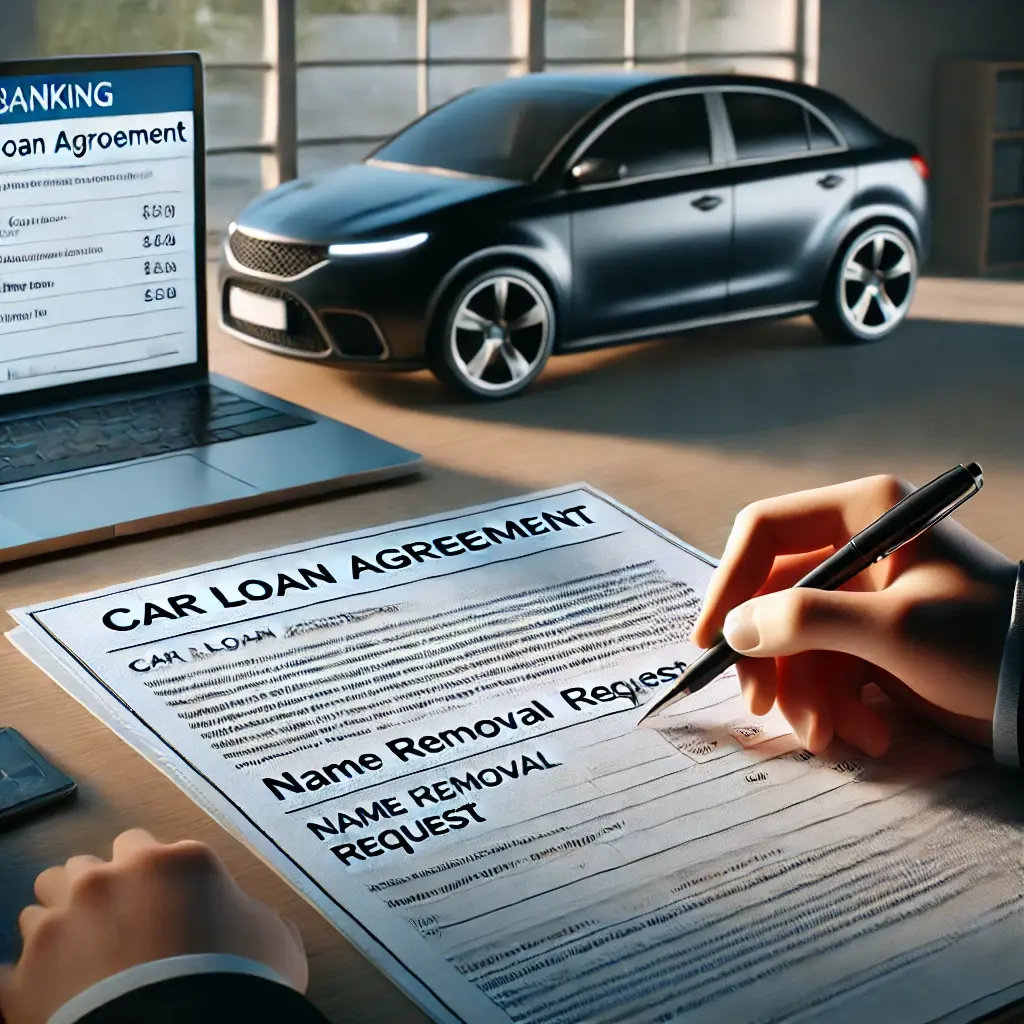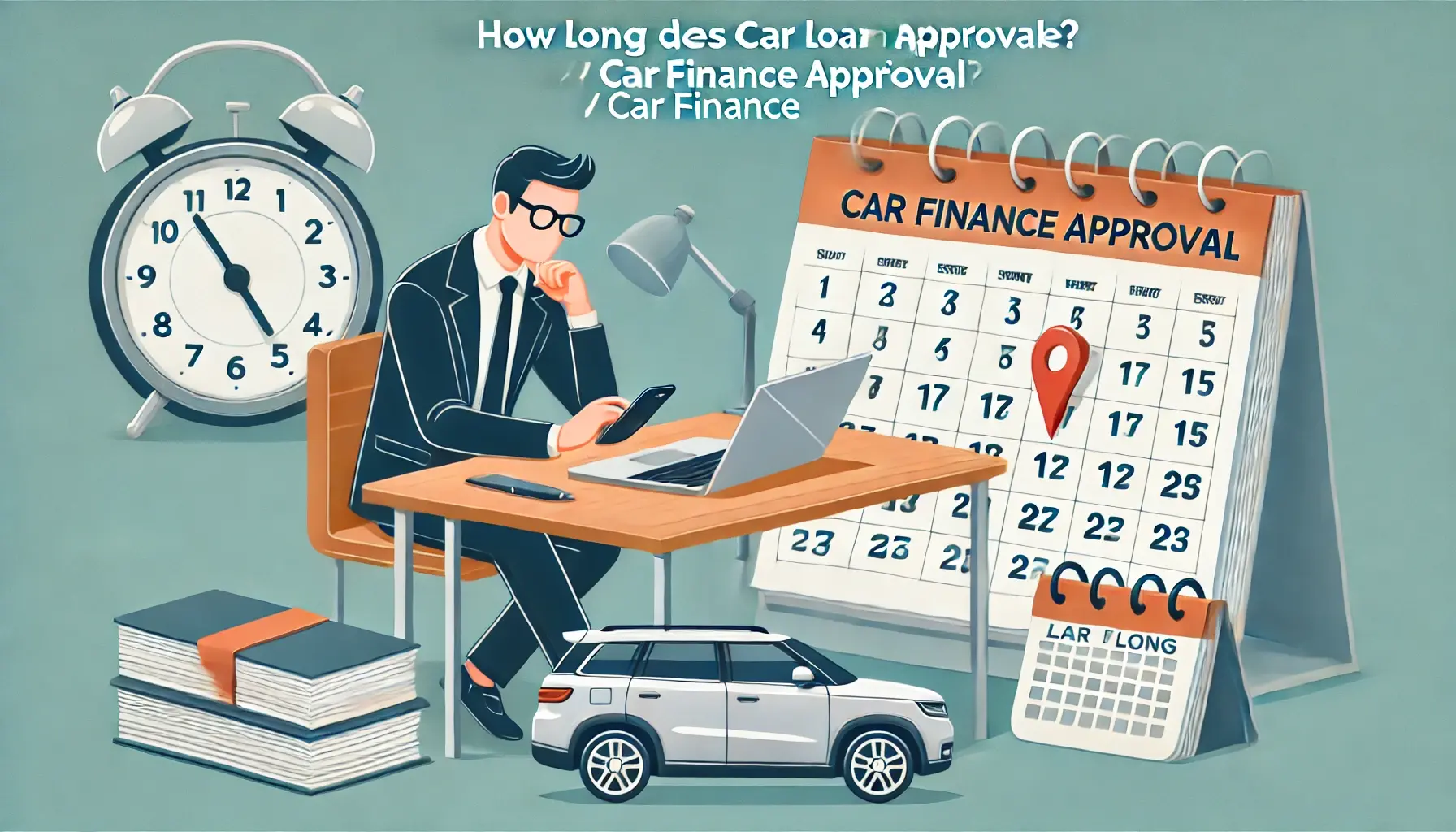How long do you need to wait until you can refinance a car loan? Many car owners wonder when they can refinance to get a better deal. It’s important to wait at least a few months after getting the original loan to build up a good credit report and improve your credit score.
Refinancing a car loan involves taking out a new loan to pay off the current car finance agreement. If your credit score has improved since the original loan, you may be able to secure better loan terms, such as a lower interest rate.
Car Loan Refinancing
Car loan refinancing allows you to replace your current loan with a new one. This can be a great way to lower your interest rate or adjust the life of the loan. By refinancing, you might reduce monthly payments or pay off the loan faster. Lenders will check your credit score and history when you apply for refinancing.
When Is the Right Time to Refinance Your Car Loan?
The right time to refinance your car loan is when your credit score has improved, or interest rates have dropped. You should wait at least six months before considering refinancing to give your credit report time to show positive changes. If you find a lender offering better terms, refinancing may save you money in the long run.
How Refinancing Your Car Loan Works?
When you refinance your car loan, you replace the existing loan with a new one. You choose to refinance your auto loan with a different lender or the same one. This new loan may have better terms, such as a lower interest rate or a longer repayment period. Refinancing can lower your monthly car payments or shorten the life of the loan. Use a loan calculator to estimate monthly payments and compare options based on interest rates and loan terms.
How Soon Can You Refinance Your Car Loan?
How Long Before You Can Refinance a Car?
You may want to refinance a car loan if your credit score has improved or if interest rates have dropped. However, you must wait at least six months before refinancing. This waiting period allows you to build up some equity in your car and show a solid payment history. If your car is worth more than the remaining loan balance, you may be able to refinance sooner.
Minimum Requirements to Refinance a Car Loan
To refinance your car loan, you generally need to meet some minimum requirements. You should have at least six months left on your current loan. Your car must be in good condition, and you may need a certain credit score to qualify for refinancing. Many lenders also require that your car payments are up to date before they approve auto refinance applications. Learn more about whether should you use a personal loan for car refinancing or not.
Waiting Period for Refinancing Your Car Loan
You must wait a specific period before refinancing your car loan. Typically, you should wait at least six months after taking out the original loan. This waiting period allows you to build some equity in your car and shows lenders that you are capable of managing your car payments. If you owe more on your car than it’s worth, refinancing might not be an option until you pay off part of your loan.
Factors That Affect Your Ability to Refinance

How Your Credit Score Affects Car Loan Refinancing?
Your credit score plays a major role in refinancing your current car loan. If your credit score has improved since you took out your initial loan, you may be eligible for better loan terms. Lenders will look at your credit score to determine the interest rate and terms of your new loan. A higher credit score can help you secure a more favorable refinancing deal and reduce the overall cost of the loan.
Impact of Loan Term on Refinancing
The term length of your current loan can affect your ability to refinance. If you are close to the end of your loan term, refinancing may not offer significant benefits. A shorter loan term means you will have less time to pay off your loan. On the other hand, refinancing a longer loan term may give you lower monthly payments, but you may end up paying more interest over time. The balance remaining on your car loan also plays a role in this decision.
Can You Refinance a Car Loan with Bad Credit?
You may still be able to refinance your car loan with bad credit, but your options might be limited. Lenders typically offer higher interest rates to borrowers with poor credit. It’s recommended to wait at least six months to a year before attempting to refinance if your credit score has improved. If your outstanding loan balance is too high or your current auto loan is not favorable, refinancing may not make sense at that point.
Steps to Refinance Your Car Loan
How to Apply to Refinance Your Car Loan?
- To refinance your car loan, start by finding a lender that offers better loan terms.
- You can use a refinance calculator to estimate your new loan’s monthly payments.
- Check your current loan’s interest rate and the length of the loan to see how much you could save.
- When you apply, you’ll need to provide details about your current auto loan and your car’s condition.
- Once you qualify, you’ll get a new loan with different terms.
Considerations Before Refinancing a Car
Before refinancing, consider the life of your loan and the loan term. Refinancing may offer a longer loan, which can lower your monthly payment but increase your total interest costs. Make sure it makes sense to refinance your car loan. If your current auto loan has a high-interest rate or unfavorable terms, refinancing may be a good option. However, if you still owe a significant portion of your outstanding loan or the car is not worth much, refinancing may not be the best choice.
Benefits of Refinancing Your Car Loan
- Refinancing your car loan allows you to replace your current car loan with a new loan that may offer better terms.
- You might be able to lower your interest rate and reduce your monthly payments.
- Refinancing can be a smart choice if you want to pay off your car faster or reduce your loan’s overall interest.
- By paying off your existing car loan with a new loan, you can save money in the long run and improve your financial situation.
Is Refinancing Your Car Loan a Good Idea?
Is It a Good Idea to Refinance Your Car Loan?
Refinancing your car loan can be a good idea if you want to lower your monthly payments or reduce your interest rate. If you took out your original loan when your credit score was lower, refinancing could help you get a better rate. It’s also a good option if soon you can refinance and your financial situation has improved. Make sure to check your outstanding loan balance before applying. Extending the loan term may lower your payments, but it can also increase the amount of interest you pay over time.
When Is It Not Worth Refinancing?
Refinancing might not be worth it if your current loan balance is too high compared to your car’s value. If you owe more than your car is worth, refinancing may not provide the financial relief you expect. It’s also not worth refinancing if you plan to pay off your car soon or if extending the loan term increases your interest costs. The best time to refinance is when you can save money on interest and lower your payments, but not all situations will benefit from refinancing.
How Refinancing Can Lower Your Interest Rate
Refinancing can lower your interest rate by replacing your current loan with a new loan that offers better terms. If you have improved your credit score or if the value of your car has increased, you may qualify for a lower rate. By refinancing, you could save money on interest, especially if you are making your car payments on time. It is generally best to refinance when your credit score has improved and you have equity in the car. This will help you secure the best loan with a lower interest rate.
How Refinancing Affects Your Credit?
Does Refinancing Your Car Loan Affect Your Credit Score?
Refinancing your car loan can affect your credit score, but the impact depends on how you manage your new loan. When you refinance, the lender will check your credit report, which may cause a slight dip in your credit score. However, if you continue making timely payments, refinancing may help improve your score over time. It is best to wait at least six months before refinancing to ensure your credit score has improved and to avoid any negative impact on your score.
Short-Term vs Long-Term Impact of Refinancing on Your Credit
Refinancing your car loan can have both short-term and long-term effects on your credit score. In the short term, refinancing may cause a small dip in your credit score due to the hard inquiry made when you apply for the loan. However, if you continue making timely payments and reduce your loan balance, the long-term effect can be positive. Over time, refinancing with a longer repayment term may lower your monthly payments, which can help you stay on track with making your car payments and improve your credit score.
How Refinancing Can Help Improve Your Credit
Refinancing your car loan can help improve your credit by potentially lowering your interest rates and improving your loan terms. When you refinance, you may secure better rates if your credit score has improved since you took out your original loan. By lowering your loan term or securing a better interest rate, you can pay off the loan faster and reduce your outstanding balance. People choose to refinance when they want to lower monthly payments or save on interest, both of which can boost their credit score over time.
Final Thoughts:
In conclusion, the best time to refinance your car loan depends on a few key factors, including the age of the car and the length of the loan term. It is generally recommended to wait at least six months before applying for refinancing. This gives you time to improve your credit score and find better interest rates and loan terms. Use an auto-refinance calculator to estimate your new payments and determine if refinancing makes sense for your financial situation.
FAQ’s
How soon can I refinance my car loan?
You can refinance your car loan as soon as you’ve made at least six months of payments. This gives you time to improve your credit score and qualify for better interest rates and loan terms.
Does the age of my car affect refinancing?
Yes, the age of your car can affect your ability to refinance. Older cars may have higher interest rates, and some lenders may not refinance cars that are too old.
How can I estimate my new payments before refinancing?
You can use an auto-refinance calculator to estimate your new payments. This tool will help you determine the impact of refinancing on your loan term and monthly payments.



